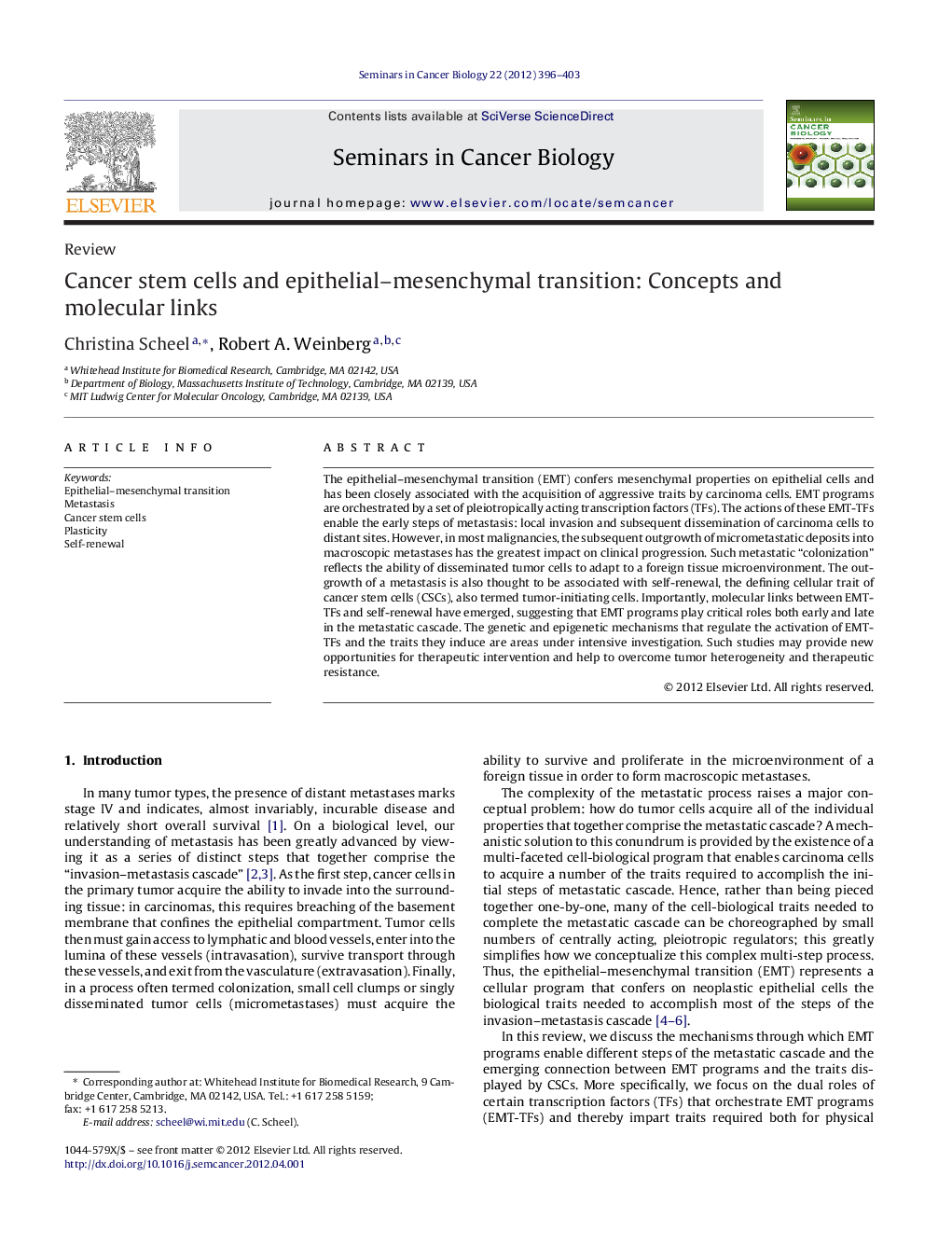| Article ID | Journal | Published Year | Pages | File Type |
|---|---|---|---|---|
| 2023765 | Seminars in Cancer Biology | 2012 | 8 Pages |
The epithelial–mesenchymal transition (EMT) confers mesenchymal properties on epithelial cells and has been closely associated with the acquisition of aggressive traits by carcinoma cells. EMT programs are orchestrated by a set of pleiotropically acting transcription factors (TFs). The actions of these EMT-TFs enable the early steps of metastasis: local invasion and subsequent dissemination of carcinoma cells to distant sites. However, in most malignancies, the subsequent outgrowth of micrometastatic deposits into macroscopic metastases has the greatest impact on clinical progression. Such metastatic “colonization” reflects the ability of disseminated tumor cells to adapt to a foreign tissue microenvironment. The outgrowth of a metastasis is also thought to be associated with self-renewal, the defining cellular trait of cancer stem cells (CSCs), also termed tumor-initiating cells. Importantly, molecular links between EMT-TFs and self-renewal have emerged, suggesting that EMT programs play critical roles both early and late in the metastatic cascade. The genetic and epigenetic mechanisms that regulate the activation of EMT-TFs and the traits they induce are areas under intensive investigation. Such studies may provide new opportunities for therapeutic intervention and help to overcome tumor heterogeneity and therapeutic resistance.
